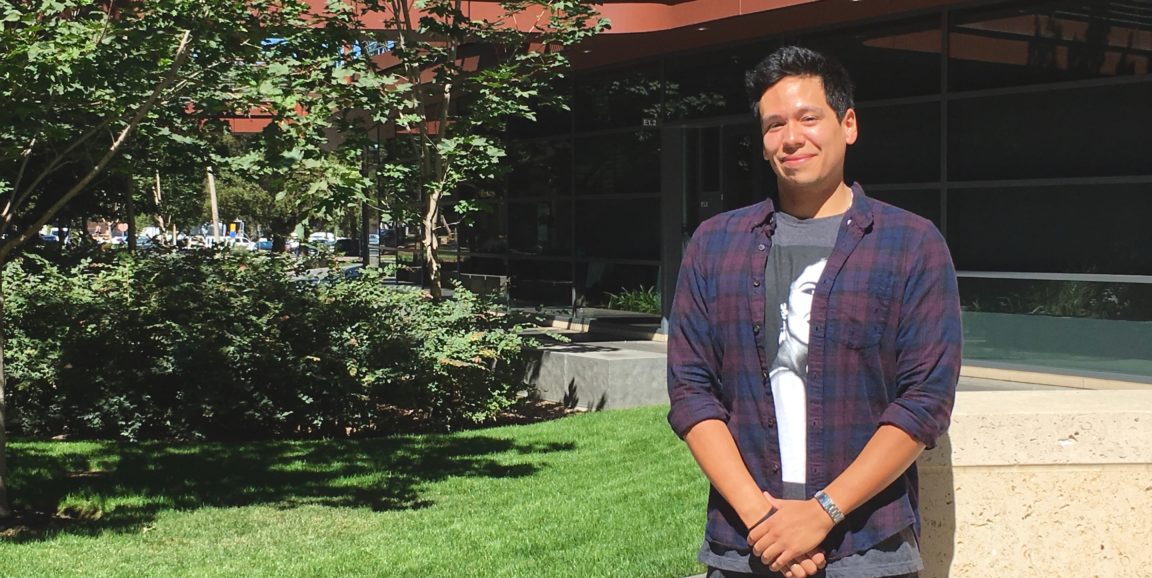Eddy Albarran has a killer story about how he happened to attend Stanford, first as an undergrad and now as a graduate student in neurosciences. I'll let him dive right in:
We're originally from Peru, but we were living in Idaho and my mom was working as a housekeeper. She worked for a great man who was a professor here [the late Norman Nie, PhD]. She saw Stanford this and Stanford that all over the house.
She came home and said you've got to go to this place. She forced me to apply. I had no idea what it was.
Once I got in and came to check it out, I found out what Stanford really was.
Wow. How did you get interested in science?
As an undergrad at Stanford I was pursuing a computer science degree, but I've always been interested in languages. I would take language learning courses for fun.
That just snowballed into wanting to learn more and more about how we understand and produce language, which became cognitive science, and one thing led to another and now I'm a neuroscientist.
What are you working on today?
These days I'm interested in how the brain changes to allow learning to occur, specifically for motor skills, such as mice reaching for small food pellets.
Through a series of fortunate scientific mishaps, I'm currently studying the processes engaged by the endocannabinoid system and how that is involved in motor learning.
What is most fulfilling about your work?
I view what I currently do as a graduate student in science as very fortunate and privileged -- I organize my own schedule and go in and do experiments to answer very obscure specific biological questions. Science for me is a bit of a selfish hobby -- I really enjoy it.
Fulfillment for me comes from mentorship and advocacy to be able to change something for the better for other students.
I've been very involved with various student group sand efforts -- in particular I want to shout out the Stanford Biomedical Association for the Interest of Minority Students (BioAIMS).
How do you get your best work done?
I think my thoughts on work and productivity are generally that any mood is the right mood for work. If there's work to be done, I'll force myself to do it.
It comes back to my parents -- I remind myself that they had to work hard jobs to get by, I'm just going in and playing around with scientific toys. That makes it pretty easy.
Have you kept up your interest in languages?
I'm less serious, but yes, I just really like learning and language is continuous learning. The beast I have been trying to tame for a while now is Mandarin.
How do you unwind?
I find that I'm pretty unwound most of the time. My friends say I am a little too chill sometimes. I like to hike and play video games.
Do you like music, podcasts?
I'm a big hip-hop head. My brother who is 16 years older introduced me. It loops back to the language -- I like to listen to rap in different languages to listen for context and plays on words.
Favorite food?
Ramen -- the kind that takes hours to make. That's just food for the soul. And a close second is pizza from Costco. I realize not many people would put those together.
Do you have any advice for future graduate students?
In academia in general, there's just a lot of doubt and overthinking. Think about things just enough so you aren't making a completely thoughtless decision, but then just go for it, don't overanalyze.
What is your ultimate career goal?
I'd like to pursue scientific questions eventually in my own lab setting and at the same time and more importantly use my position to be an advocate for underrepresented students to help provide opportunities both in academia and beyond.
In the Spotlight features standout scholars in the School of Medicine.
Photo by Becky Bach




